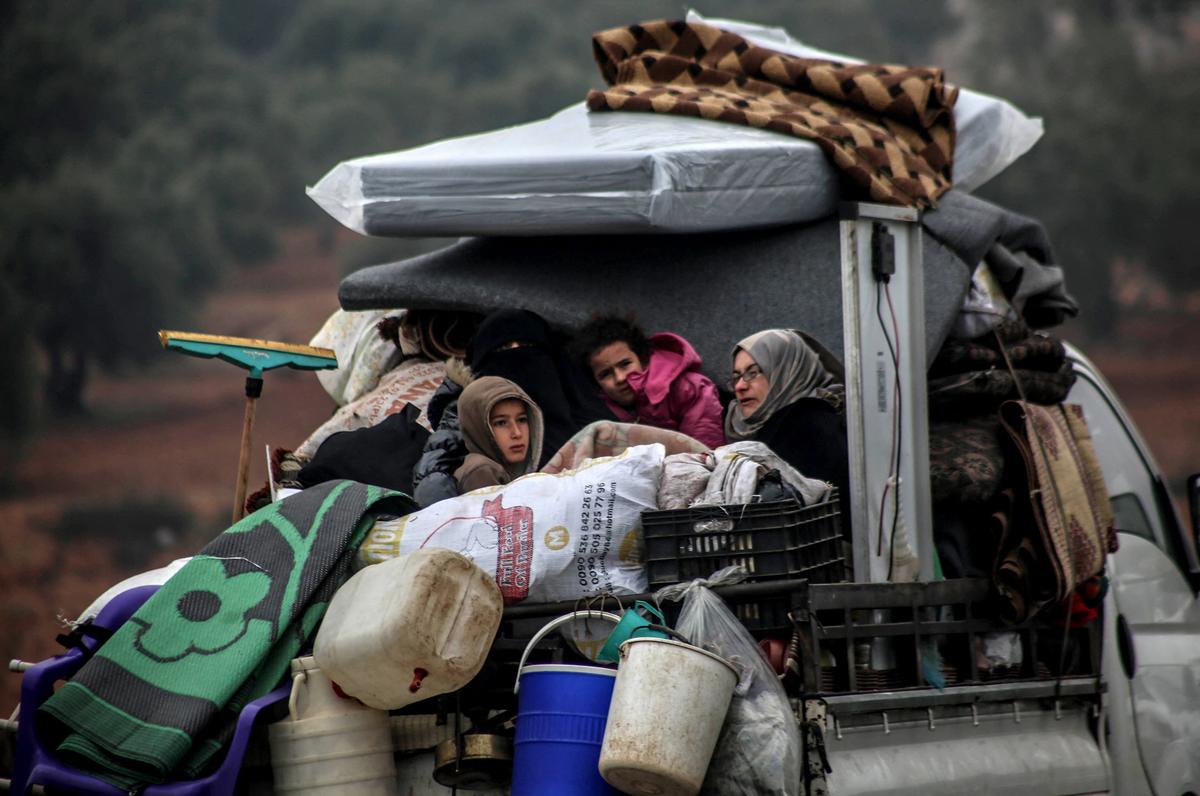UNHCR delivers aid to thousands in Myanmar's remote Kachin state
UNHCR delivers aid to thousands in Myanmar's remote Kachin state

MYITKYINA, Myanmar, March 26 (UNHCR) - A convoy carrying tarpaulins, mosquito nets and kitchen sets supplied by the UN refugee agency, as well as food and relief goods from other UN agencies, on Monday reached some of the tens of thousands of displaced Kachin people on Myanmar's border with China.
Fighting between government troops and Kachin rebels has displaced some 50,000 to 75,000 people since last June. This is only the second time the Myanmar government has allowed the UN access to areas outside its control. The first UN relief convoy was allowed into the area last December; a third convoy set out today.
"We hope we will continue to be able to get access to people in need and to be able to provide assistance to them, regardless of where they are," said Hans ten Feld, UNHCR's representative in Myanmar.
Despite breakdowns on the rough roads, the convoy of four trucks and two UN vehicles reached the township of Sadung, controlled by the Kachin Independence Organization (KIO), after falling behind schedule and being forced to spend Sunday night in a village. The team began distributing the relief items to displaced people immediately.
More than 5,500 people in seven locations should be able to find shelter under the UNHCR tarpaulins delivered on the two convoys. More than 4,000 people should receive protection with the UNHCR mosquito nets. In addition, the UN refugee agency provided kitchen sets, floor mats, detergents, towels and other household items.
Throughout Kachin state, people displaced by the fighting have sought refuge in 121 emergency camps. The UN estimates 30,000 people are displaced in KIO territory and 20,000 in government territory. Several thousand others are believed to be living with families in China. Human Rights Watch last week put the number displaced at 75,000.
"We ran away from the jungle; we didn't bring anything," N-Jawn Kaw Ja,
a 48-year-old displaced mother of five told UNHCR staff monitoring the well-being of internally displaced people (IDPs) here recently. She is one of the 18,000 people UNHCR has assisted in Kachin state since October 2011.
When her village was burned down during the fighting last October, N-Jawn Kaw Ja and her husband grabbed two of their daughters, aged four and eight, and ran to their farmland in the jungle.
But a few weeks later her husband was killed after stepping on a landmine when he went out to tend his crops. Soon after she walked an entire day with the two young girls and some neighbours to reach the Myitkyina camp for IDPs, where her two teenage girls also sought shelter.
Her 28-year-old son was already there, out of his mind with grief over his father's death. "My son did not believe that his father died, because he did not see his dead body," the woman said. "His behaviour changed when I told him. He's no longer normal. He had to go to the hospital."
The UN refugee agency provided a new home for N-Jawn Kaw Ja. "The cups, plates and shelter provided by UNHCR have been very useful for us," she said. Most important, though, is feeling safe. "There is nobody left in my village," she said. "I am not ready to go back home because I am afraid."
Hugging eight-year-old daughter Lauwa Zaza Law as she talked to a visiting UNHCR staff member outside her new house, she added: "The fear that I have inside of me is still there."
By Rosalie Fournier in Myitkyina, Myanmar












